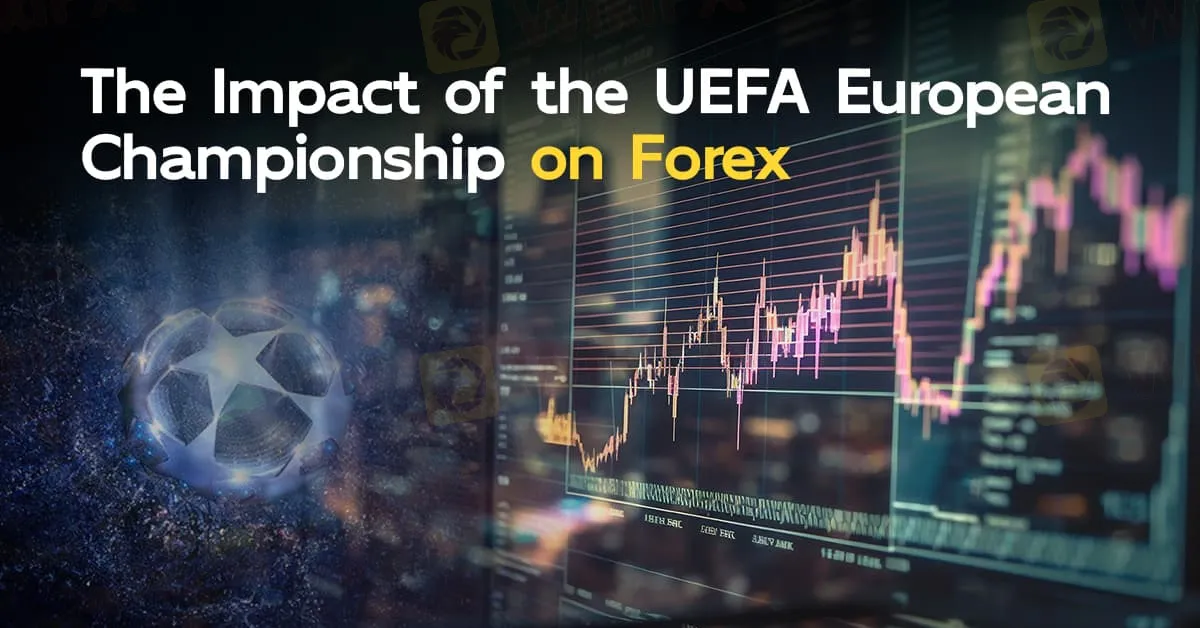简体中文
繁體中文
English
Pусский
日本語
ภาษาไทย
Tiếng Việt
Bahasa Indonesia
Español
हिन्दी
Filippiiniläinen
Français
Deutsch
Português
Türkçe
한국어
العربية
The Impact of the UEFA European Championship on Forex
Abstract:The UEFA European Championship, the premier football tournament in Europe held every four years, attracts global attention from fans and media worldwide. Apart from its influence in the realm of football, the European Championship also has implications for the foreign exchange market. So, how significant is the impact of the European Championship on foreign exchange?

The UEFA European Championship, the premier football tournament in Europe held every four years, attracts global attention from fans and media worldwide. Apart from its influence in the realm of football, the European Championship also has implications for the foreign exchange market. So, how significant is the impact of the European Championship on foreign exchange?
Boost Local Economies
Hosting the European Championship draws fans from around the world to the host country, generating substantial revenue for the local tourism and hospitality sectors. Additionally, the event stimulates development in areas such as construction, transportation, and security, indirectly bolstering economic growth and enhancing the purchasing power and attractiveness of the host country's currency.
Impact on Local Currency Exchange Rates
The influence of the European Championship extends beyond the host country to affect the currency trends within the Eurozone. During the tournament, the currencies of host nations may experience fluctuations; some currencies might appreciate while others depreciate. Moreover, investors may divert attention away from financial markets to focus on the tournament, potentially reducing trading volumes in both stock and foreign exchange markets.
Impact on Fiscal Budgets
Hosting the European Championship entails significant financial investment, including venue construction, maintenance, and security expenses. Many host countries rely heavily on government funding and borrowing to cover these costs, which can impact their fiscal stability. Failure to meet budgetary demands may necessitate increased taxes or reduced expenditures, further affecting fiscal stability.
While the direct impact of the European Championship on foreign exchange markets may not be pronounced, its broader effects on political, economic, and fiscal aspects can exacerbate existing issues in some countries. Therefore, investors should closely monitor potential risks during the European Championship and adjust their investment portfolios accordingly.

Disclaimer:
The views in this article only represent the author's personal views, and do not constitute investment advice on this platform. This platform does not guarantee the accuracy, completeness and timeliness of the information in the article, and will not be liable for any loss caused by the use of or reliance on the information in the article.
Read more

Webull Launches SMSF Investment Platform with Zero Fees
Webull introduces commission-free SMSF trading, offering over 3,500 US and Australian ETFs, with no brokerage fees and enhanced portfolio tools.

How Will the Market React at a Crucial Turning Point?
Safe-haven assets like gold and U.S. Treasuries are surging, while equities face mounting pressure. As this pivotal moment approaches, how will the market react?

Gold Prices Climb Again – Have Investors Seized the Opportunity?
Gold prices have hit record highs for three consecutive days, with a remarkable 19% gain in the first quarter, marking the strongest quarterly performance since 1986. As market risk aversion rises, demand for gold has surged significantly.

Philippines Deports 29 Indonesians Linked to Online Scam Syndicate in Manila
Online scam groups in the Philippines trick Filipinos into gambling and love scams, from Manila to Bacolod, causing trafficking and pain as police fight back.
WikiFX Broker
Latest News
Exposing the Top 5 Scam Brokers of March 2025: A Closer Look by WikiFX
Gold Prices Climb Again – Have Investors Seized the Opportunity?
Webull Launches SMSF Investment Platform with Zero Fees
Australian Regulator Warns of Money Laundering and Fraud Risks in Crypto ATMs
FCA Warns Against 10 Unlicensed or Clone Firms
CySEC Warns Against 14 Unlicensed Investment Websites
Top Currency Pairs to Watch for Profit This Week - March 31, 2025
Will natural disasters have an impact on the forex market?
Philippines Deports 29 Indonesians Linked to Online Scam Syndicate in Manila
AI-Powered Strategies to Improve Profits in Forex Trading
Currency Calculator







